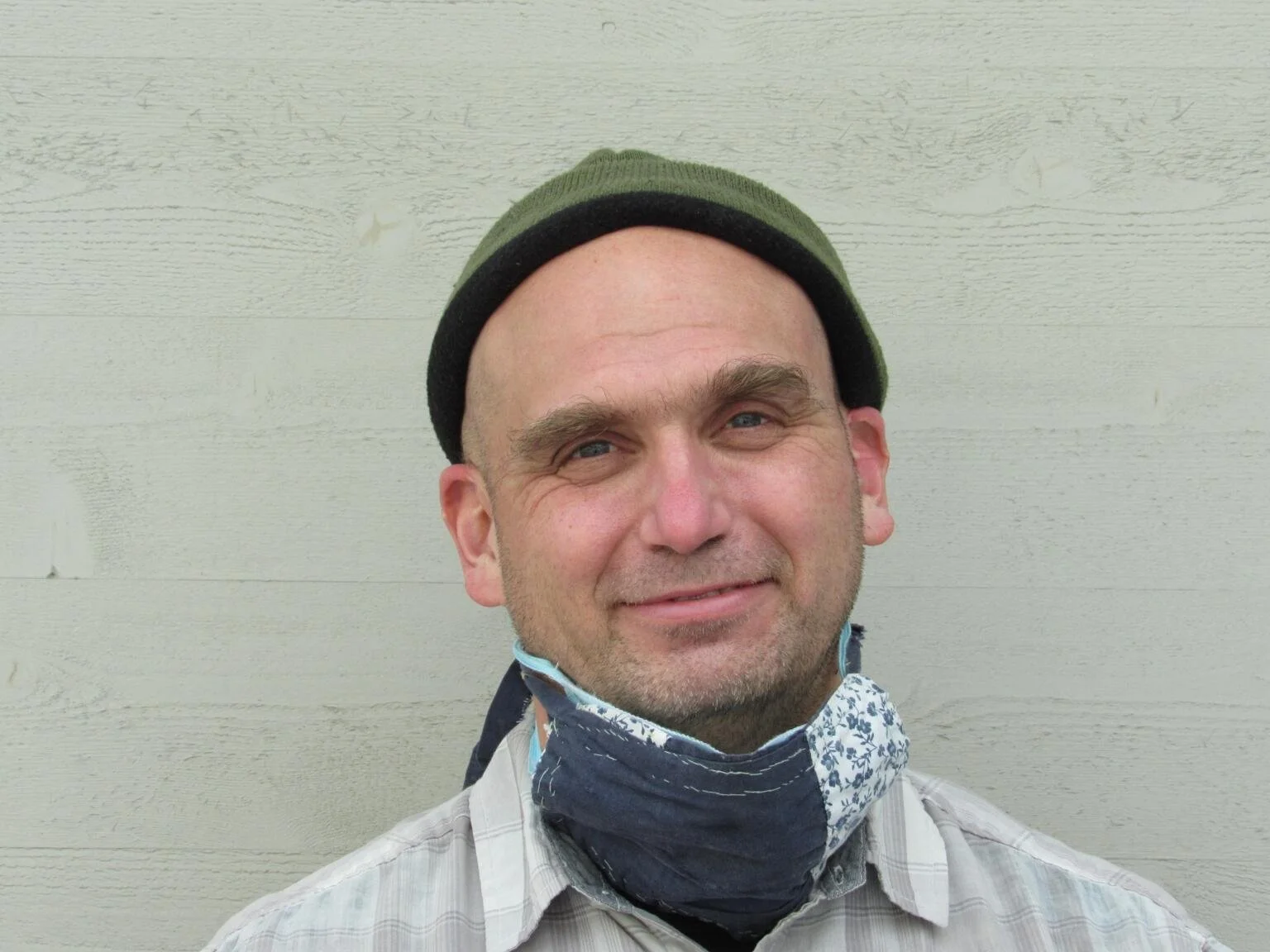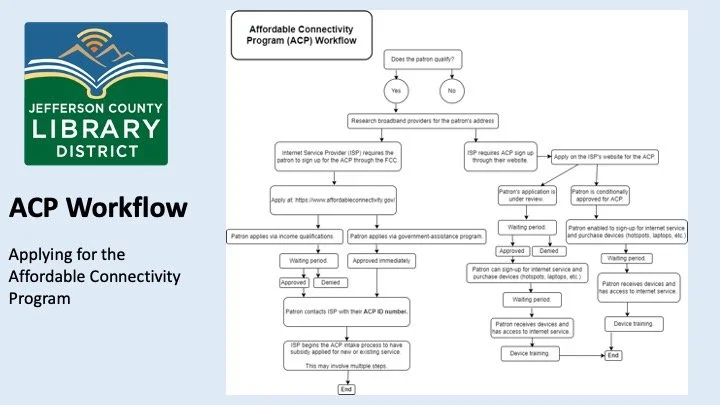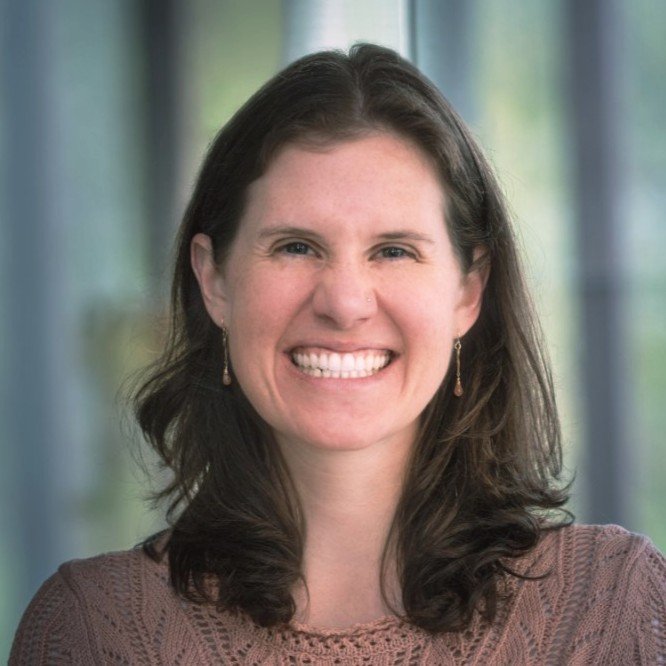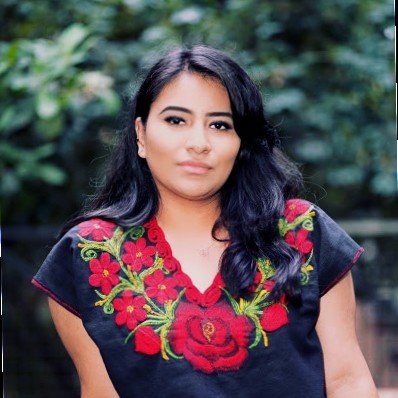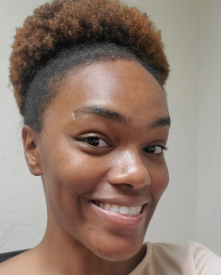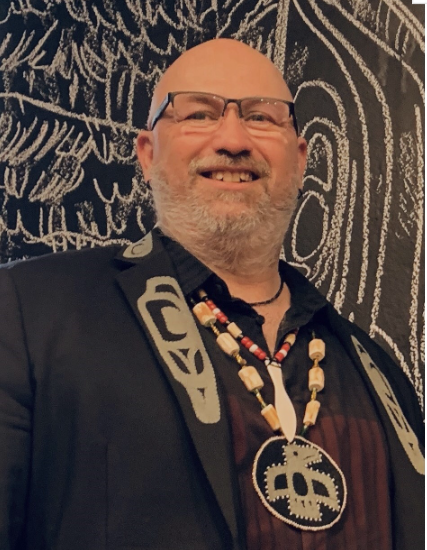Jaime Pena
Digital Equity Navigator, Jefferson County Library
Interview by Maraki Yewondwossen & Alex Hochhalter
November 29, 2022
Located in Port Hadlock-Irondale on Washington state’s Olympic Peninsula, Jefferson County Library serves a rural county of some 32,000 people. Jaime Pena is the library’s Digital Equity Navigator, a role that supports all facets of digital inclusion – home connectivity, device selection and deployment, and digital literacy skills for people across Jefferson County. The Digital Equity Navigator was created to more comprehensively address the many aspects of digital equity library staff have observed a need for. Currently, the role is supported for 2 years through three different external funding streams. As in many rural areas, travel can be an obstacle to receiving services. So Jaime travels between four locations to offer intensive support to patrons (Jefferson County Library, Port Townsend Public Library, Quilcene Food Bank, and the Brinnon Community Center.) In our interview, Jaime described to us the many ways that Jefferson County Library is on the front lines of Digital Equity in their area and how their efforts have evolved in response to the Covid-19 pandemic and its aftermath as well as some digital equity “wins'“ Jaime has seen in the course of supporting Jefferson County Library patrons.
Q. What is your definition of Digital Equity?
JP: Equal access to your internet service equipment and information— primarily digital— as well as somebody to teach you or classes to provide you with the skills to be able to access information. That's how I would define Digital Equity. It's basically equal access to those things.
Q: What about Digital Equity motivates you?
JP: As far as what motivates me— I just enjoy it. I just enjoy helping people get from one place to another— to help them to be successful. When people are able to get connected with low cost Internet or find a reasonably priced device or just learn how to use their cell phone better, I enjoy seeing them make those connections and I enjoy being able to provide them that support.
Q: What are you passionate about in this space?
JP: The ability to foster, perhaps, a more level playing space as far as information goes, access to it, and access to resources that may not be available to the people I work with.
Q. What values and/or principles are important for everyone in this space to do good work?
JP: Let's say patience as well as giving people the space to learn at their own pace. A lot of the people I speak to have other people who may have tried to help them family members or whatnot and one of the things they remark on is that they're always very helpful, but they tend to move very quickly. So it's very hard for them to pick up the necessary steps and have to do something. So it is important to have patience so that they can work through problems, take their own time, and make those connections for themselves. And it’s essential to not be judgmental, to just work without bias and to just help. Everyone that comes in, regardless of what their needs might be or what their backgrounds may be, we are here to provide an equitable service.
Q. What have been big wins for you and how did they happen? What sorts of support were needed for them?
JP: I'm not sure if I have had what people would think are big wins. I've been thinking about this question a little bit, but— Some examples might be, for instance, we have a local nonprofit grange [a type of local association for farmers common in the rural United States] and they were in need of a low cost internet solution. We were able to get them connected with Mobile Citizen a non-profit that provides low-cost internet solutions for nonprofits specifically. Being able to make that connection was great.
Another example of a “win” in my work was working with a local, long time resident patron who had recently lost their eyesight— helping them learn how to use their iPhone’s accessibility features for the blind, VoiceOver, so they could navigate on their phone using their voice and enjoy audio books provided by the library as well as getting them connected with the Washington Talking Book and Braille Library was also very rewarding. Any time you see somebody make a connection to start learning, that feels like a win to me.
Also, anytime we can help people get connected with the assistance programs is a win. People may need help with income assistance or heating or anything of that nature. But there is a digital barrier as far as doing applications for those services and getting connected for appointments. Things of that nature are always very rewarding because it helps ease the burden for those folks a bit. One of the mandates of the Digital Equity Coordinator job is to get people connected with low cost internet. So anytime we're able to put those moving parts together and get it successfully done where we can get them signed up with the program through the government and then get them connected with the internet service provider, so that they can get Internet service. Getting those pieces to work together, that's definitely always the success.
“When people are able to get connected with low cost internet or find a reasonably priced device or just learn how to use their cell phone better, I enjoy seeing them make those connections and I enjoy being able to provide them that support. ”
Q. What is Jefferson County Library’s goal in moving towards digital equity? What steps are being made by your organization to reach that vision?
JP: I guess the easiest way to describe our goal is to describe where we're coming from. A good place to start would be from the Covid-19 Pandemic shutdown. Once that happened, we needed to— and were able to— start providing curbside service. I mean the library was, of course, already providing access to computers before then and offering wi-fi in the building. But once the shutdown happened, we opened that up so that wi-fi was available twenty-four hours in our parking lot to people. We now also provide mobile wi-fi devices to patrons to check out so they now can get internet access for two weeks at a time with a device they can take home.
The library is also commited to providing tech classes. We call them “Tech Tuesday” and we cover various topics. When the shutdown happened, tech classes, of course, stopped until we started doing them via Zoom. So that was one of the things that came about from pandemic shutdown. We started to provide technical support to people through online classes and then, eventually, in person again once the re-open happened.
Those are some things that lead up to this Digital Equity Navigator position that I have. We are now providing internet access, providing devices to get people connected, and providing support classes to people. Because of the pandemic and its aftermath, we have an even more dedicated focus on those things. Now we are more directly helping people get connected to the Internet, helping them get signed up for the Affordable Connectivity Program. We will walk them through the application process from the beginning to the end, or if they want to do it on their own, we provide all the information and coaching they need. If they want to know what Internet services are available where they live, we'll provide them with as much research and information as we can get them. And we still provide them with tutoring if they want as far as getting familiar with their devices and support to help them along as they continue. So what we're doing now is an extension of what we did before. This position that I now hold is giving us an extra arm to expand and complement what we were offering before to more effectively serve the different dimensions of need in our community.
This slide from a presentation given to Port Townsend Council in February 2023 by Jefferson County Library’s Director Dr. Meredith Tamara and Jaime Pena demonstrates the complexity that individuals face when trying to secure low-cost internet service (just one of many possible barriers to successful internet use). This explains the need for Digital Navigators like Pena who can help people in need to navigate the complexities of help available to them.
Q. What’s an example of some good work so far and who’s been doing it? Who would you like to give a shout-out to?
JP: One of the most valuable resources for me has been— I’m sure you are familiar with— the National Digital Inclusion Alliance. I attend their meetings regularly. They've done a wonderful job of keeping us up to date on things related to the Affordable Connectivity Program in particular. They are a resource to understand the ins and outs with that program and similarly with other government policy. They are keeping people informed on the Digital Equity work that's been going on. They do a wonderful job.
Also, the folks at Northstar Digital Literacy. We provide their digital literacy tools and curriculum. They have done a one wonderful job as a nonprofit to provide those materials.
On a local level, I've been in contact Goodwill who are also providing Digital Equity services out here on the Olympic peninsula. Nancy Chang of Goodwill is always wonderfully enthusiastic and she has a lot to share whenever I get to speak to her. So she's doing some really great work, too.
And anybody who's working in a library is providing Digital Equity whether or not they have the official title. We're all helping folks work through various problems and teaching so really just people in libraries everywhere deserve a shout-out.
Learn more about Jefferson County Library
Connect with Jaime Pena on LinkedIn.

